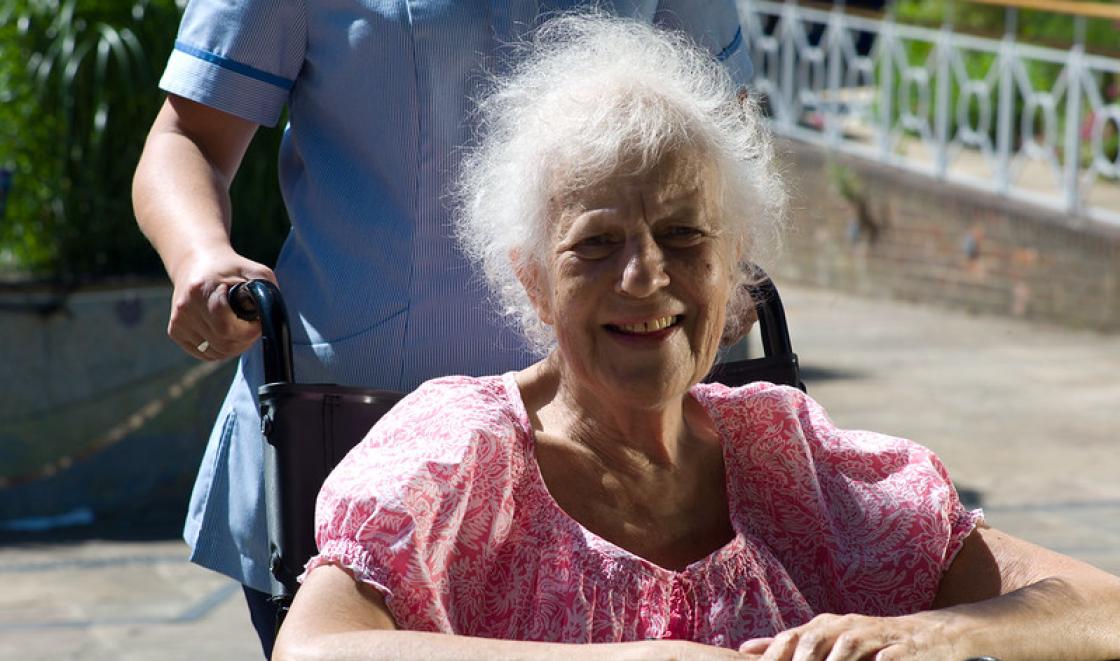People can be referred for palliative care at any stage of their illness, not just in the last few weeks of their life. Palliative care is available in a variety of places – at home, in hospital, in care homes, and hospices. There are an estimated 400 organisations running specialist palliative care services in England, including many charities, as well as NHS services.
Most people in the UK will need some form of palliative care before they die – researchers estimate between 74 and 96 per cent of the population.
The growing demand for palliative and end of life care services
People in the UK are living longer. As the population ages, the number of people dying also increases. In fact, our researchers estimate that by 2040 the number of people dying in England will increase by 25 per cent. Of these, 54 per cent will be aged 85 years or older.
These older patients will be living with more complex combinations of health conditions than people in the past. Older people and people with advanced disease can now live with eight or more different chronic health conditions, such as heart disease, cancer, COPD, and dementia.
This will create more demand for palliative care services. It will also lead to increased costs for the NHS, as around 20% of all healthcare costs are spent on people in the last year of life.
The picture in London
London is an ageing city. By 2035, the number of people aged above 60 years is predicted to rise by 48 per cent and the number aged above 80 is set to rise by 70 per cent. This is compared to a 12 per cent increase in the numbers aged under 60 over the same period.
This ageing population is already having an impact on health outcomes. In south London, the suburb of Bromley has higher than expected deaths from dementia. And across London, there are high rates of deaths in hospital, with Croydon having some of the highest rates in the city.
Older Londoners are not a homogeneous group. Some are wealthy, and able to make choices about their lifestyle and the kind of health and care services they access. Others are poorer, and may need more support and care, and be reliant on state-funded services.
As well as these inequalities around wealth, the availability of palliative care services varies from place to place – and not everyone who needs this support gets referred for specialist care.
Improving the quality - and availability - of palliative and end of life care services, is therefore a local and national priority for health and care services, commissioners and the NHS.
About ARC South London’s palliative and end of life care research
ARC South London has a team of researchers who are investigating how to improve palliative and end of life care. The team is based at the Cicely Saunders Institute, King’s College London, a world-leading centre for palliative care research, which brings together academics, healthcare professionals, community organisations, patients, carers and families.
Aims of our research
The research team aim to improve the effectiveness and cost-effectiveness of palliative and end of life care, and to ensure that these services are accessible to people who need them.
The researchers will organise their work around three core projects that seek to:
- Understand clusters of multimorbidity and the impact this has on health and care services
- Establish evidence-based decision support tools to improve care and patient outcomes
- Develop cost-effective models of care, that are designed to meet the needs of people living with multiple chronic conditions.
Our collaborators
Our research team is working closely with hospices, palliative care services, social care services, commissioners, NHS services and public health organisations, locally, nationally and internationally. This includes the World Health Organization, Office for National Statistics, Care Quality Commission, Public health England (PHE), charities, government, policymakers, clinicians, and non-governmental organisations.
How we are taking this work forward
Building on our research around improving palliative care for people with multimorbidities, we are evaluating the impact of interventions and care models for people affected by advanced illness in community settings, including care homes. We will develop and evaluate decision support tools for people with advanced illness, that enhance self-management, access to care and shared decision-making. In the longer-term, we aim to understand and identify ways to reduce inequalities within palliative care relating to access to care and variations in care experiences and outcomes.
Co-leading an NIHR forum for improving palliative and end of life care across England
The research team are also working closely with researchers at ARC East of England, co-leading a national forum for improving palliative and end of life care services.
How we are involving patients, services users, carers and public
We offer many ways for patients, service users, carers, and family members to contribute to our research. This includes through regular patient and public involvement (PPI) workshops, a national online PPI forum – the first of its kind in the UK - and within project advisory groups.
Our PPI representatives help to set our research priorities. They also work closely with us to shape research methods, help interpret findings, and disseminate publications and outputs.
Find out more
- The palliative and end of life care theme aims to improve palliative and end of life care for communities in south London and beyond, through research and close working with patients and carers. Read a short report on our progress against our short-term objectives and our response to the Covid-19 pandemic (September 2022).








